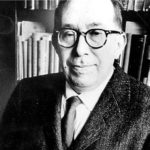In 1999, Allen C. Guelzo published Abraham Lincoln: Redeemer President, an intellectual biography that situated Lincoln’s politics within the literary, political, religious, philosophical, and economic ethos of antebellum America. He presented Lincoln as “a man of ideas” navigating an era swirling with them.
Guelzo returned to this theme ten years later in Lincoln: A Very Short Introduction, organized explicitly as “a biography of his ideas.” That book explored, in amazingly chronological fashion, the most important concepts and policies that motivated Lincoln personally and politically: its seven chapters focused on human equality, personal advancement, the rule of law, liberty versus slavery, his debates with Stephen A. Douglas, his approach to emancipation during the American Civil War, and the reconstruction of the American union. For a primer on Lincoln’s life and politics, it remains the best “very short” biography. In Our Ancient Faith: Lincoln, Democracy, and the American Experiment, Guelzo revisits Lincoln as a man of ideas but with greater elaboration and a sense of urgency: as he puts it, “I take up his principles with the yearning that once again, this last, best hope of earth may yet have a new birth of freedom.”
The book explores what Lincoln thought about various aspects of democracy in America during the antebellum and Civil War periods, with Guelzo providing adept historical and philosophical context along the way. The topics range from the obvious, like liberty, law, civil liberties, race, and emancipation, to the not-so-obvious, such as the political economy and cultural habits that Lincoln believed sustained—or were facilitated by—a democratic way of life.
Guelzo also examines specific challenges the American regime faced during Lincoln’s political ascendancy. How Lincoln understood these challenges, and the remedies he offered, serve as a defense of “the American experiment” not only in Lincoln’s day but also today, as Americans experience something of an identity crisis. The crisis of Lincoln’s day was driven by competing interpretations of what the American founders intended by preserving the union of the American states: most importantly, did they consider slavery to be “a necessary evil” or “a positive good”? But where that fundamental opposition was among partisans who shared an almost universal respect for “our revolutionary fathers,” Americans today no longer speak with unhesitating praise of its founding. State legislatures and elite media offer competing opinions about whether the union of the original thirteen states was worth the cost of permitting slavery to continue in the American states. Our Ancient Faith ably presents Lincoln as America’s greatest defender at a time when that nation is now, arguably, most in need of defending.
Start your day with Public Discourse
Sign up and get our daily essays sent straight to your inbox.So what did Lincoln mean by “our ancient faith”? In his 1854 speech at Peoria, Illinois, what Guelzo rightly calls “the greatest speech he had yet uttered,” Lincoln identified the Declaration of Independence as the source of America’s ancient faith: “If the negro is a man, why then my ancient faith teaches me that ‘all men are created equal;’ and that there can be no moral right in connection with one man’s making a slave of another.” That Lincoln turned the humanity of black people into a rhetorical question made clear his concern that America was at risk of losing its claim to be a free country. Lincoln then added that “according to our ancient faith, the just powers of governments are derived from the consent of the governed.” Only by “re-adopt[ing] the Declaration of Independence, and with it, the practices, and policy, which harmonize with it,” could the union of American states be “worthy of the saving.”
Lincoln’s nemesis, Stephen Douglas, emphatically disagreed. Quoting Lincoln, Guelzo recounts that Douglas employed the “lullaby” of popular sovereignty to “tranquilize the whole country” into thinking “there would be no more slavery agitation in or out of Congress, and the vexed question would be left entirely to the people of the territories.” Most importantly, Guelzo adds that the “real damage came from the implication that ‘popular sovereignty’ was real democracy, that democracy had no bedrock of principle beyond the mechanics of democratic process.” As committed to democracy as Lincoln was, vox populi, vox Dei was never his mantra the way it was for Douglas. Those, like Douglas, who did not see that the equality principle of the Declaration of Independence included all people regardless of race, essentially taught citizens “that there is no right principle of action but self-interest.”
It was precisely Douglas’s caricature of democracy, where political might would dictate who had rights, that Lincoln feared would tempt white northerners to become indifferent to the plight of black people in the federal territories. After his 1858 campaign to unseat Douglas in the Senate failed, Lincoln called him “the most dangerous enemy of liberty, because the most insidious one.” Lincoln predicted that local popular sovereignty would grease the skids for slavery to expand into the territories: “The question arises, ‘slavery or freedom?’ Caring nothing about it, they let it come in, and that is the end of it. It is the surest way of nationalizing the institution. Just as certain, but more dangerous because more insidious; but it is leading us there just as certainly and as surely as Jeff. Davis himself would have us go.” What made Douglas’s “don’t care” policy so “insidious” was that no politician north of the Mason-Dixon line needed to argue in favor of slavery’s expansion into federal territories. Simply get white Americans in the free states not to care if the enslavement of black people became legal in the territories. Once slavery was accepted as a constitutional right there, a second Dred Scott ruling would make it legal in the free states regardless of what their laws or constitutions said.
Lincoln rebutted Douglas’s perversion of popular sovereignty in the stirring conclusion to his February 1860 Address at Cooper Institute in New York City: “let us have faith that right makes might, and in that faith, let us, to the end, dare to do our duty as we understand it.” What kind of faith should Americans have going into that pivotal election year of 1860? Lincoln reversed the principle at the heart of popular sovereignty—that numerical “might makes right”—by exhorting his New York audience (and newspaper readers across the country) to have faith that “right makes might” in at least two respects. First, his appeal was a candidly partisan one: Republicans should have faith that their anti-slavery principles were not only right, but could also garner sufficient votes to secure the presidency and make substantial gains in Congress. Voting according to what was right—the Republican cause of preventing the spread of slavery—could also produce a numerical majority, namely, political might working on behalf of right.
On a deeper level, Lincoln asked Americans to consider what democracy required of them to maintain its legitimacy: that its form of government could actually produce justice for all and not simply majority rule at the expense of minority rights. Thomas Jefferson spoke of this in his First Inaugural Address of 1801 when he observed, “All, too, will bear in mind this sacred principle, that though the will of the majority is in all cases to prevail, that will to be rightful must be reasonable; that the minority possess their equal rights, which equal law must protect, and to violate would be oppression.” Lincoln believed that to vote Republican in the fall of 1860 would not only halt the spread of slavery, but also vindicate popular rule.
In Lincoln’s writings, the word “democracy” almost always meant the Democratic Party, known conventionally as “the democracy.” It must have infuriated him to read and hear “democracy” not to signify “government of the people, by the people, for the people,” but rather, a political party that had long since become the bastion of the slaveholding interest. Early in the book, Guelzo expounds on Lincoln’s “only attempt” to define democracy. In a note he jotted to himself most likely in 1858 as he prepared for his debates with Douglas, Lincoln wrote: “As I would not be a slave, so I would not be a master. This expresses my idea of democracy. Whatever differs from this, to the extent of the difference, is no democracy.” If I would not trust anyone with absolute authority over my life, why do I think I could be trusted with absolute authority over anyone else’s? As Lincoln put it in his Peoria Address, “no man is good enough to govern another man, without that other’s consent. I say this is the leading principle—the sheet anchor of American republicanism.”
He restated this principle in an 1859 letter praising Jefferson as the author of “the definitions and axioms of free society.” Lincoln observed that “he who would be no slave, must consent to have no slave. Those who deny freedom to others, deserve it not for themselves.” As Guelzo aptly puts it, “Democracy implied a political Golden Rule.” The refusal to be enslaved logically obliged a person to refuse to enslave anyone else. Guelzo goes on to conclude each chapter by reformulating Lincoln’s “idea of democracy” to summarize the chapter’s lesson.
Lincoln died for the sake of a country both men believed was dedicated to the self-evident truth “that all men are created equal.”
Slavery, of course, contradicted the democratic reciprocity that gave rise to equality under the law. But when Guelzo asserts that the slaveholding interest embodied “the threat posed by passion to law,” he draws a hasty conclusion that by 1861, “secession thrived on passion.” In fact, what’s most striking—not to mention disheartening—about the secession winter of 1860–61 are the calm appeals to the Constitution and legal rights under the law by departing southern congressmen. Given the Republican animus toward the 1857 Dred Scott opinion of Chief Justice Roger B. Taney, seceders feared the incoming Republican administration would undermine the rights of slaveholding Americans. Moreover, complaints about personal liberty laws passed by free state legislatures, which subverted the enforcement of the fugitive slave acts passed by Congress in 1793 and 1850, lent plausibility to their claim that the constitutional union had already been dissolved, giving secession the patina of a peaceful, legal separation. Flawed as their arguments were, passion alone did not account for their resort to arms to defend what for decades they had told themselves and the nation were their rights under the Constitution. Alas, there’s no debating that the passion of one rebellious American sent Lincoln to his grave.
On the day of Lincoln’s death, Frederick Douglass called him “our beloved martyr President.” Although he called Lincoln’s Second Inaugural Address “a sacred effort,” the faith for which Lincoln died was not a religious faith. Lincoln died for the sake of a country both men believed was dedicated to the self-evident truth “that all men are created equal.” Lincoln died for bearing witness to this “ancient faith” in his last public address, which focused on Reconstruction. He implored Congress to accept the work of loyal citizens of Louisiana, who had “adopted a free-state constitution, giving the benefit of public schools equally to black and white, and empowering the Legislature to confer the elective franchise upon the colored man.” Lincoln’s endorsement of black citizenship expressed his faith in the promise of America, whose principles and institutions gave freedom the best chance of becoming a practical reality for all its members.
Most importantly, Lincoln had faith in the American people. While the better angels of their nature were not sufficient to forestall a civil war, their resolute defense of constitutional self-government demonstrated their conviction that the American experiment in popular government was worth saving.
As Americans prepare to mark the 250th anniversary of the nation’s birth, in 2026, some argue there’s more to criticize than celebrate. Our Ancient Faith provides ample evidence of what Lincoln found worth celebrating about the American experiment, and what Guelzo finds worth celebrating about Lincoln.
Image by renegate and licensed via Adobe Stock.













